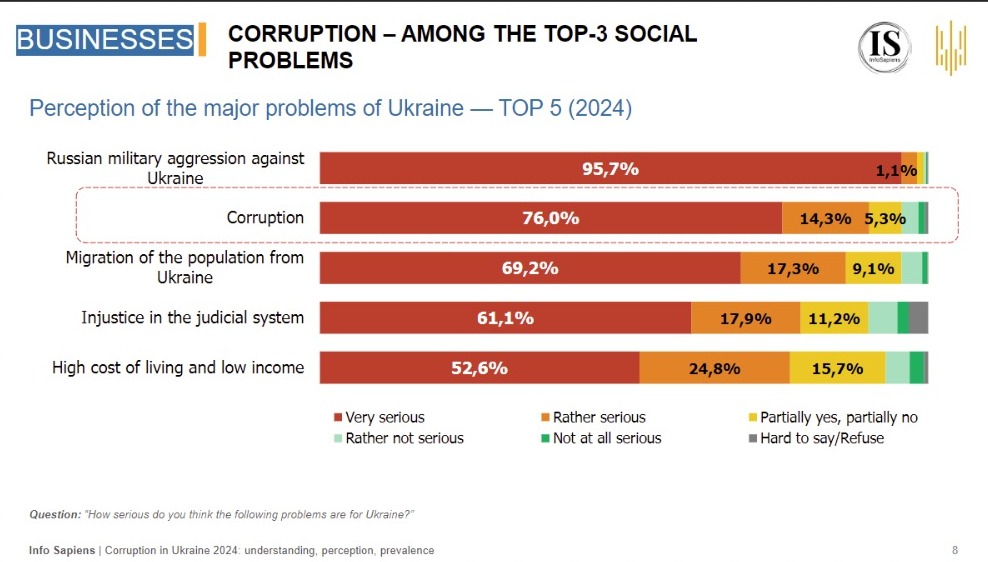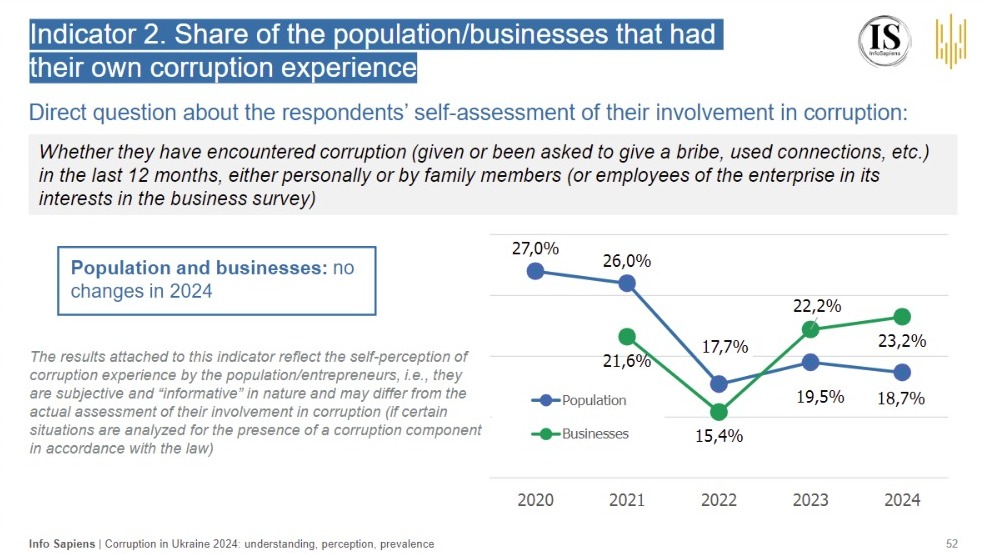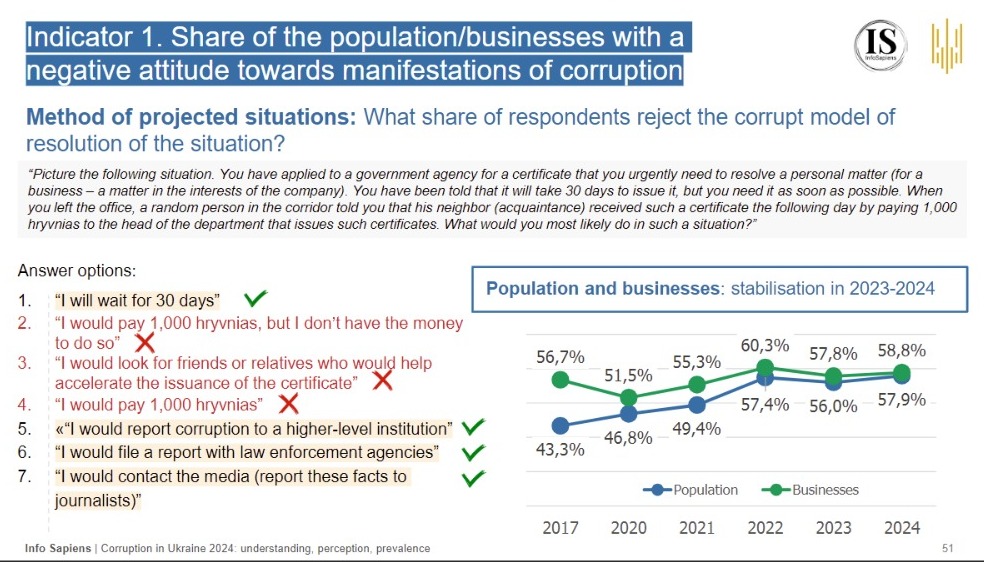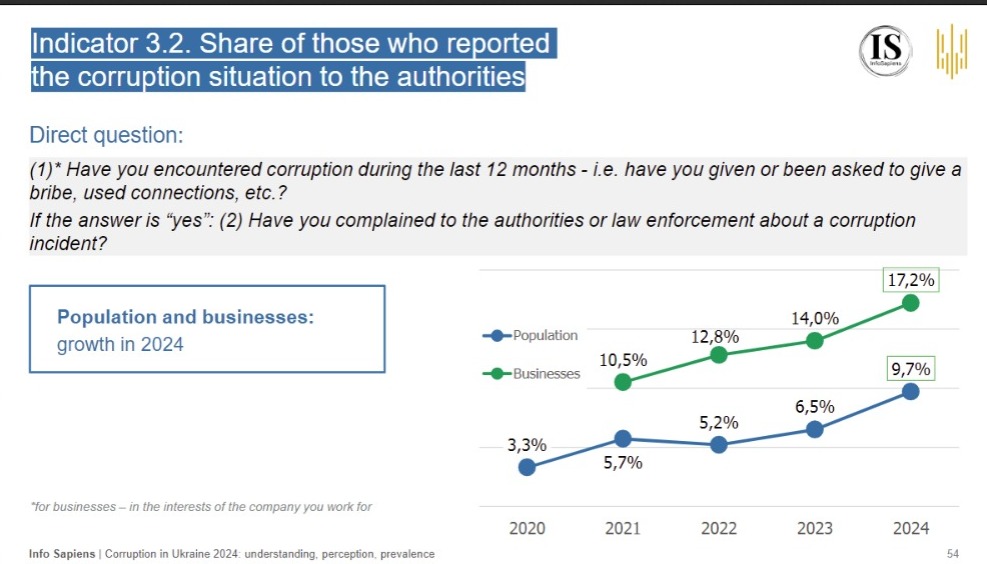An increasing number of entrepreneurs in Ukraine view corruption as a priority issue in the country after Russian aggression.
This is according to a study by Info Sapiens commissioned by the National Agency for Corruption Prevention.

Key findings from the survey of entrepreneurs:
- 57% believe that the level of corruption in Ukraine has increased over the past year;
- 83.1% think that corruption is somewhat or very widespread;
- 23.2% reported actual experience with corruption, while 17.2% reported it to the relevant authorities;
- More than a third reported no instances of corruption in their area of business.

The perception index of corruption prevalence in the industry where businesses operate is significantly lower compared to other sectors and Ukraine as a whole. 54.2% of respondents stated that corruption in their industry is "nonexistent."
At the same time, businesses view the following as the most affected by corruption:
- Customs;
- Service providers for the connection and maintenance of electricity, gas, water supply, and sewage systems;
- Law enforcement, construction, and land relations.
"We are concerned about the lack of positive dynamics of changes in these areas. They have remained the “leaders” in terms of the prevalence of corruption for several years in a row. In fact, every third entrepreneur who encounters these areas states this,” said Volodymyr Kharchenko, Head of the Division for Generalization of Data on Corruption and Counteraction to Corruption of the NACP's Anti-Corruption Policy Department.

The lowest corruption experience rates were recorded in sectors such as tax authorities, business activity control and supervision, and enforcement of court decisions.
The study also noted an increase in entrepreneurs' involvement in exposing corruption. In 2024, one in six business representatives reported corruption to competent authorities, marking the highest figure compared to previous years.

The survey results are available at the link.
The survey was conducted via computerized telephone interviews. The sample represents individual entrepreneurs (IEs) and business owners and/or managers of legal entities. A total of 1206 respondents were interviewed. The maximum theoretical error of the sample of entrepreneurs does not exceed ±3 percentage points without taking into account the design effect.





















